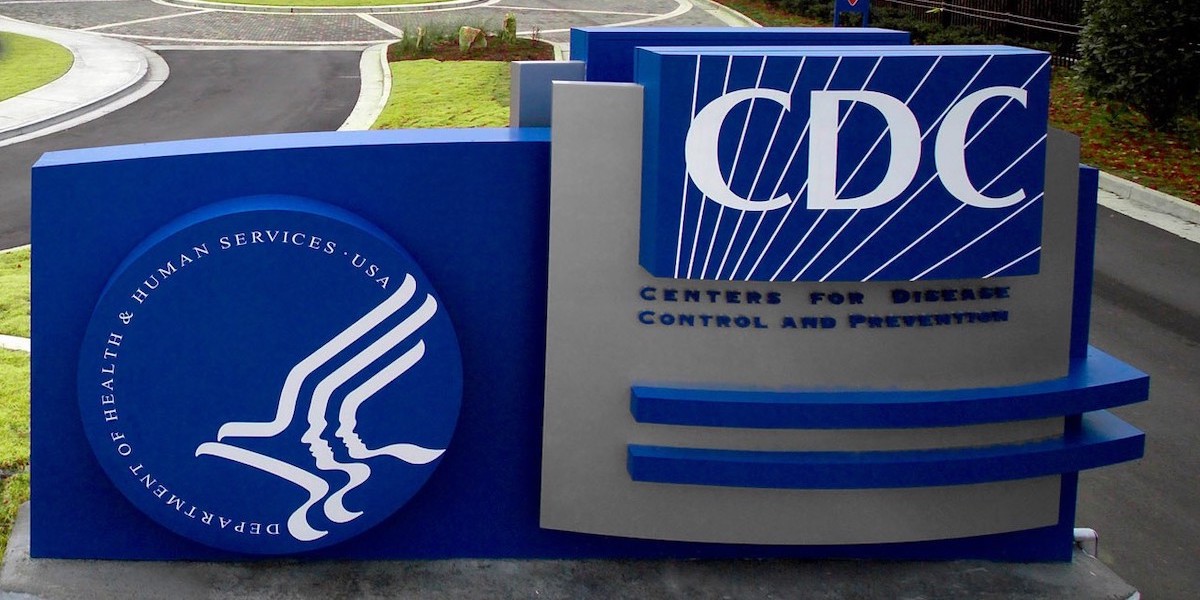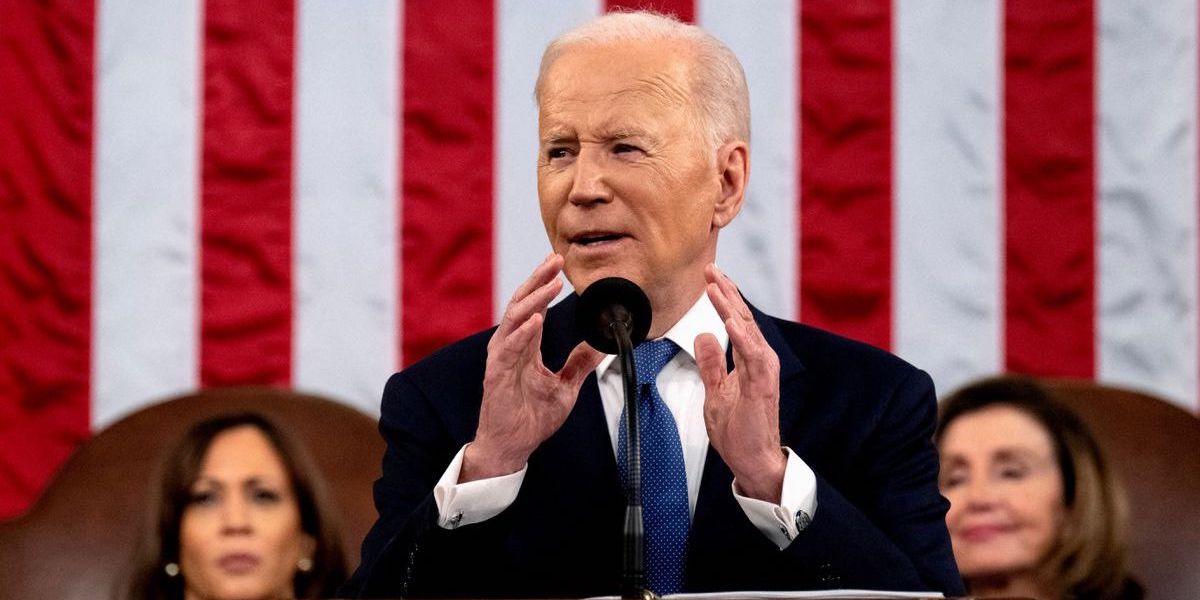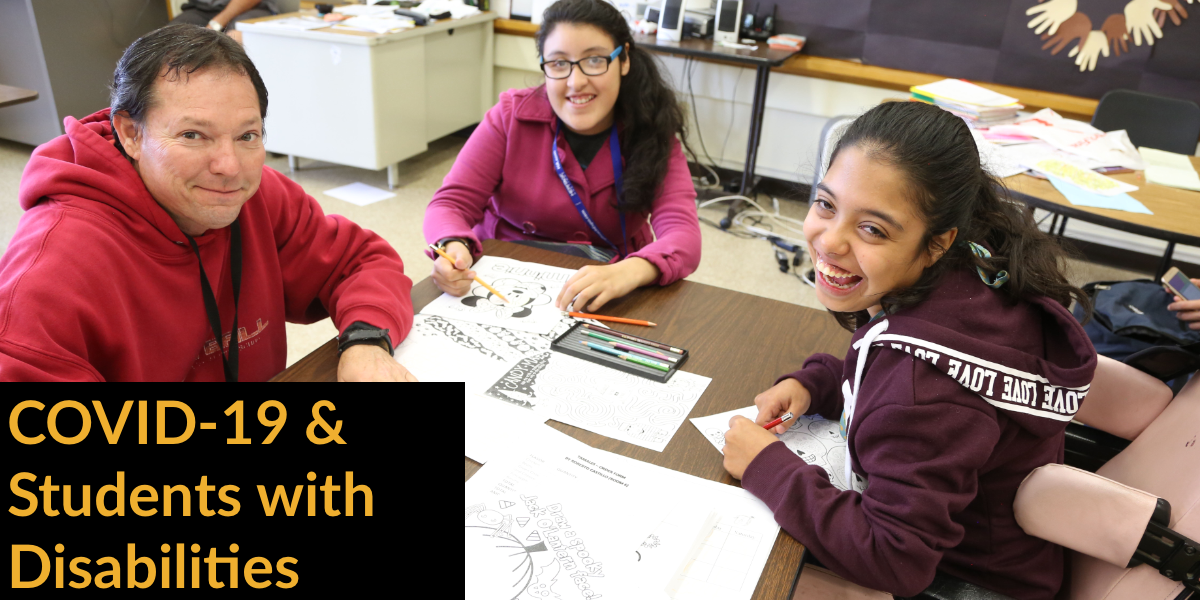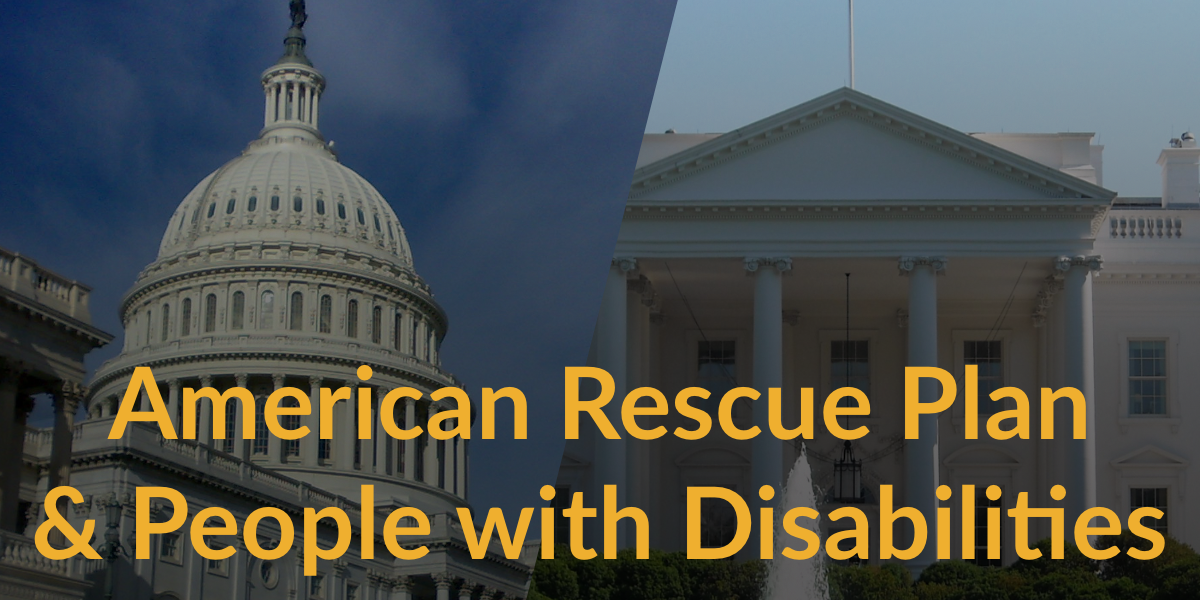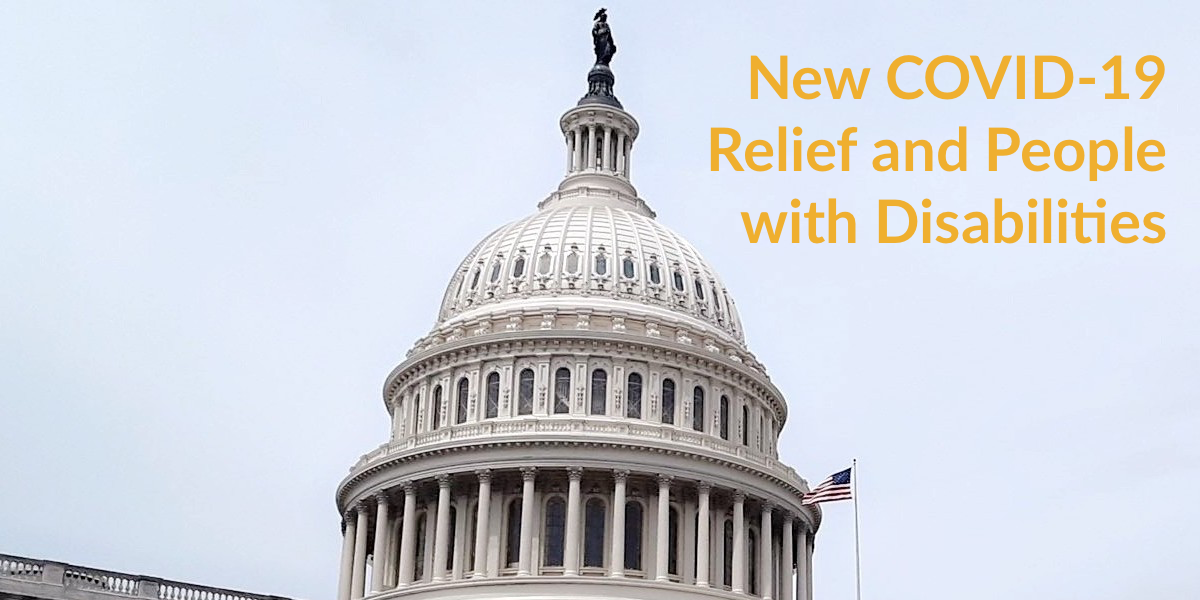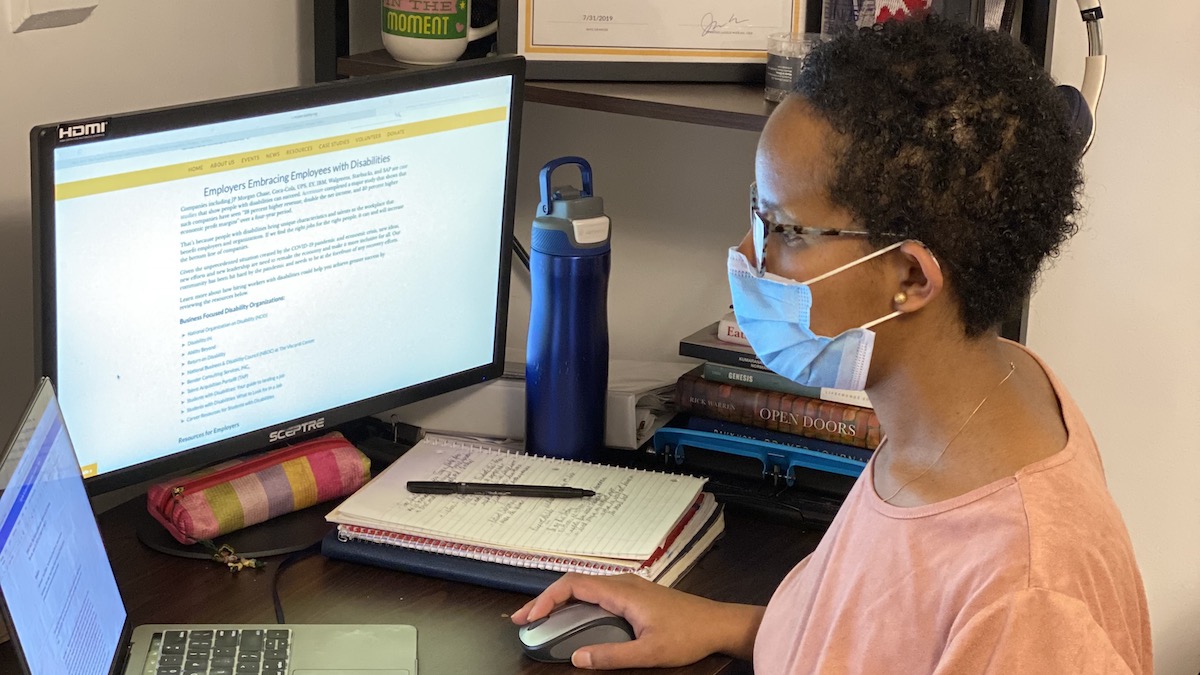The new $900 billion stimulus bill promises more stimulus checks, extends unemployment supports and impacts everything from businesses to schools.
Washington, D.C., Dec. 22 – After months of partisan gridlock and inaction, the Congress finally approved a massive coronavirus relief bill last night and sent it to the President’s desk. This mammoth bill, totaling more than 5,000 pages of legislative language and with more than $900 billion in spending, becomes law at the same time as the United States crosses the grim milestone of more than 316,000 dead because of the pandemic.
New, But Smaller Checks for Individuals With and Without Disabilities:
The new bill does include a new round of stimulus checks to be sent directly to millions of Americans with and without disabilities. This new, smaller check will be a one-time cash payment sent from the government to all U.S. residents with adjusted gross income up to $87,000 ($174,000 if you are married) and each dependent child under age 17.
As was the case earlier this year, this will explicitly exclude approximately 13.5 million adult dependents who include high school or college students living at home and millions of people with disabilities. This is a major disappoint for many activists, given past bipartisan support to expand support for adult dependents.
Likewise, because this stimulus check is considered a rebate, it will NOT be counted against the asset limits faced by people with disabilities if spent within 12 months of receipt. However, people with disabilities who are on Supplemental Security Income (SSI) will have to file their taxes. This could create a major burden for many of the poorest people with disabilities and other low-income communities, many of whom may find access to filling out the forms a challenge.

